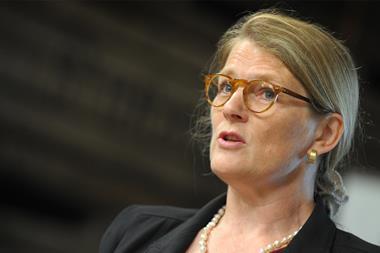
The government should concentrate on cutting the red tape faced by suppliers from waves of retailer audits, rather than extending the remit of the Groceries Code Adjudicator to cover primary producers, according to the Provision Trade Federation.
In its draft submission to the Department for Business, Energy and Industrial Strategy review into the Adjudicator’s role, the PTF warned extending the GCA powers would be difficult to fund, if the role was extended all the way along the entire supply chain.
It also ignored the burden faced by existing regulatory demands from retailers, it said.
‘’While the Code has undoubtedly led to improvement in many areas, there is evidence of new problems arising in relation to new requirements, particularly in terms of factory audits’’, said the draft.
While backing the Elliot Review call in 2014 for more effective and challenging industry audits of food businesses the PTF said suppliers were now being bombarded by red tape.
Instead of single audits covering multiple issues, such as the British Retail Consortium (BRC) standard, there was a proliferation of specific additional audits on issues such as traceability, microbiological safety, environmental and ethical impacts.
Audits were increasingly conducted by third parties, who may visit the same factory on behalf of different retail customers within days, with commercial confidentiality preventing any sharing of previous results, the PTF added.
The federation estimated the cost of audits for the meat and dairy industry alone had risen to more than £314,000 a year and warned that in the uncertain climate facing suppliers.
“BEIS should be aware that there are currently intense cost pressures within the supply chain and extending Code disciplines further down the chain will not resolve the underlying issues relating to profitability.
And without a corresponding increase in the resources available to the Adjudicator, it is possible that doing so could weaken rather than strengthen overall compliance’.
However, the PTF backed plans, supported by some influential industry sources, to extend the Code to other retailers rather than further down the supply chain.
It said: ‘’An alternative approach might be to ask if there is sufficient Code coverage at the retail end of the chain.
“Although the 10 companies currently in scope account for a very large majority of sales, they are in competition with others who are not covered, or who sell to the market in slightly different ways. It may therefore be preferable to test this by bringing more retailers into scope before considering any extension of coverage to other parts of the chain.’’



















No comments yet